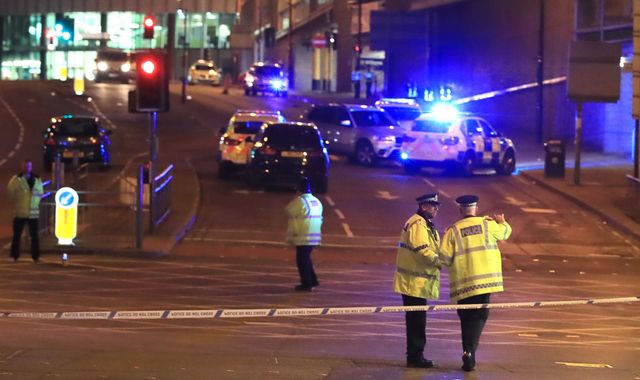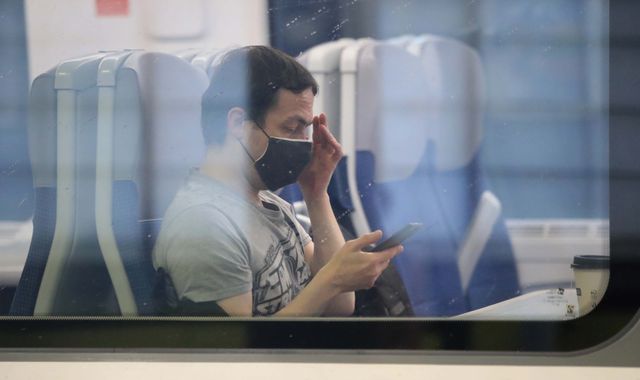Manchester Arena attack: Police commanders fall out with bosses over tactics used on night of bombing
Written by News on 04/02/2021
Police commanders on duty on the night of the Manchester Arena bombing have been granted separate legal representation after falling out with their bosses over the tactics they used on the night.

It came as the inquiry was told that police commanders said they felt “ill-equipped” to respond to a terrorist incident in interviews with the police inspectorate before the attack.
A senior firearms commander who helped design the police response to an attack said it was “well understood” that the police commander was a “potential single point of failure”.
On the night, the police force duty officer in Manchester wrongly declared the bombing a marauding firearms attack, which may have delayed the response of the ambulance and fire services.
He was “quickly overwhelmed” by the number of tasks he had to perform and had to call on a junior officer to answer his phone, leading to a breakdown in communication with the other services, the inquiry has heard.
In a ruling issued on Wednesday, the chairman said Chief Inspector Dale Sexton, the force duty officer who ran the response on the night, and Superintendent Mark Dexter – the tactical firearms controller who ran the response on the ground – had both complained that their force was withholding documents from them.
Sir John Saunders said it was “possible that there may be a number of criticisms” of Chief Insp Sexton’s actions on the night, which was apparent from an expert report.
“One central criticism which has already been flagged is the suggestion that Chief Insp Sexton was wrong to take the decision not to inform the other emergency services of his declaration of Operation Plato,” Sir John said.
“GMP (Greater Manchester Police) do not consider that they can support that decision.”
Operation Plato deals with a marauding terrorist firearms attack of the type seen in Paris in 2015 and declares hot, warm and cold zones, which decide how fast the emergency services can get to the injured.
The inspector has said that he did not “openly declare his view” that the arena was a “hot zone” to the other emergency services because he “knew this would hinder the emergency response”.
He took a “calculated risk” to allow unarmed police officers to stay even though he knew he was going against national guidance.
In his ruling, Sir John said Supt Dexter also faces criticism because GMP argue that as well as running the armed response on the ground, he was also responsible for directing the unarmed police officers.
“There is a potentially significant issue as to whether the response of the police to the emergency would have been improved if there had been a senior officer assigned to the arena to direct the unarmed police,” Sir John said.
There may also be questions of whether Supt Dexter “dealt with issues surrounding Operation Plato correctly”, the chairman added.
Granting the two officers “core participant” status, the chairman said: “In the light of these actual and potential disputes, a decision was made that these two GMP officers should have separate representation at the inquiry.
“Unhappily, disclosure issues have arisen which have not been resolved. This has resulted in applications for large amounts of disclosure being made directly to the inquiry legal team for documents that it is said GMP have not supplied.
“It is apparent that the two legal teams here have significantly different understandings of what documents may be relevant to different issues and this has led, over a period of time, to a number of practical difficulties.”
The dispute came to light as the inquiry heard about a report from Her Majesty’s Inspectors of Constabulary that looked at 15 police forces’ preparations for a terrorist attack, including Greater Manchester Police, in the months before the attack that killed 22 people.
The inspection report found “the majority of force incident managers felt ill-equipped and need more guidance and training”.
One officer pointed out that he had received two days’ training to deal with a vehicle pursuit but only one to two hours on a marauding firearms attack.
Paul Greaney asked Richard Thomas, head of counter-terrorism capabilities for Counter-Terrorism Police Headquarters, if the report recognised the risk of the force duty officer becoming “over-burdened”.
He told the inquiry: “It was a well-understood fact that the force duty officer was a potential single point of failure.”
Manchester had held an exercise called Winchester Accord a year before the attack which found a “lack of communication” and “low awareness of terminology” from the control room.
Mr Thomas said the burden on the force duty was “not something new to us” from the exercise and had been “recognised for some considerable time”.
But the inspection report said: “The majority of control room staff were unaware of any exercises, even where held, and unaware of being included. Only one force had simulated calls.
“We were impressed with the [national] operational development unit oversight of exercise recommendations, however in all forces we visited we found a lack of knowledge of lessons-learned material.”
It concluded that there were “shortcomings in the command and control” and the support and advice to unarmed officers was “inconsistent, incomplete and could lead to a failure in the police response”.
Updated and expanded advice was issued on 23 March 2017, the day after the Westminster Bridge attack, because it was recognised there was a “lack of specific guidance relating to the unique demands of a Plato incident for force incident managers, unarmed patrol officers and control room staff”, the inquiry heard.
In a letter to all chief constables after the Westminster attack – two months before the Manchester bombing, Chief Constable Habgood told them: “In the light of the attack in London yesterday, I would encourage you to commission an urgent review of your local Plato response plans against this new national guidance, attached.”
Operation Plato
The fire and ambulance services should not be expected to go into the same areas as the police, Mr Thomas said.
The Plato plan, which has only been used five times, envisaged the creation of hot zones – where the armed attackers were still active; warm zones – where they had recently left but might return; and cold zones – which were safe to enter.
But Mr Thomas said they also recognised there was a “distinction between police officers and other emergency service responders” such as the fire service and ambulance.
“There was a different understanding about what could be expected from the emergency services in respect of the way they operate,” he said.
Nevertheless he said that “multi−agency working” was “the golden thread throughout”.
There was a “need to act together to secure the best preservation of life” and “commanders where possible should come together and make that joint decision about how best to respond to that incident,” he said.
Sir John Saunders said it sounded like there might “have to be a group discussion at the time of an emergency” and asked: “Is that desirable?”
The inquiry has heard the fire service refused to turn up to the suggested rendezvous point (RVP) saying it was “too central” and instead met at a fire station two miles away.
Mr Thomas said he would “expect the police to propose an RVP and if any of the service colleagues identified an issue with that to share it and, if there needed to be, have a discussion, but in my experience, fairly extensive experience, that won’t happen very often.
“An RVP will be identified by the lead agency and the other agencies will be comfortable with it and so they will remain with that RVP.”
Sir John Saunders said: “Not here, I’m afraid, on this occasion.”
Mr Thomas said he would “struggle to foresee a set of circumstances” in which police would not tell the other agencies they had declared Operation Plato.
Asked if the same person should be in charge of the armed and unarmed police response, Mr Thomas said: “The command structure should be such that it can flex according to the nature and scale of the operation.”
(c) Sky News 2021: Manchester Arena attack: Police commanders fall out with bosses over tactics used on night of bombing






